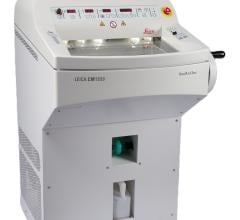
March 4, 2019 — iCAD announced their intent to enter an exclusive relationship with two leading researchers at The Karolinska Institutet in Stockholm, Sweden,, to develop an artificial intelligence (AI)-based solution that will identify a women’s individual risk of developing breast cancer.
This partnership builds on an existing research agreement whereby researchers at the Karolinska Institutet developed a breast cancer risk prediction model using information identified in mammography images provided by iCAD’s AI cancer detection and density assessment solutions. Promising early results based on mammography images from more than 70,000 Swedish women enrolled in The Karolinska Mammography Project for Risk Prediction of Breast Cancer (Karma) study were published in Breast Cancer Research in 2017. These data indicated that the model enabled early identification of women who were at a high-risk for breast cancer and it was determined that additional examinations were warranted. Since this publication, these results have been improved upon through the use of iCAD’s latest ProFound AI algorithm. Among other things, the model now takes asymmetry of mammographic features and masking of tumors into consideration.
iCAD and the Karolinska Institutet researchers now intend to collaborate to develop an innovative solution for commercial use to assess an individual’s risk of developing breast cancer. Both parties have agreed to negotiate in good faith with the expectation of entering into an exclusive license agreement for the breast cancer risk assessment model.
According to the World Health Organization, breast cancer is the most prevalent cancer among women worldwide, impacting more than 2 million women each year. Breast cancer screening and early detection are key to improving outcomes and survival rates. However, today, most mammography screening programs are not individualized, so a significant need exists to be able to identify individual risk of the disease in order to most effectively screen for breast cancer.
“Models that accurately predict an individual woman’s risk of developing breast cancer are paramount to transitioning from age-based screening to risk-based screening,” said Per Hall, professor, senior physician, Karolinska Institutet. “Most current risk models are population-based and focus on lifetime or long-term risk. Our research using the iCAD AI technology has shown that by simply using the information available in the mammogram images, we can more accurately stratify women based on short-term risk. Understanding short-term risk will open the door to new paradigms in both the prevention and treatment of breast cancer.”
iCAD announced the commercial availability of its ProFound AI for breast cancer detection in digital breast tomosynthesis in 2018. The algorithm delivers critical benefits, including improvements of cancer detection rates, a decrease in unnecessary patient recalls, and shorter reading times for radiologists.
For more information: www.icadmed.com


 February 11, 2026
February 11, 2026 









